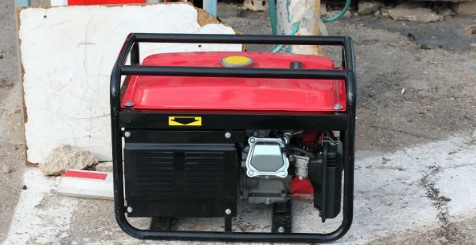Leaving your generator idle for more than a few days can cause problems. If you’re not using it, how do you keep the performance and reliability of your generator at peak performance?
The answer lies in understanding what will happen when you leave your generator unused.
If your generator sits idle for longer than a few days, you run the risk of the oil in your engine breaking down. This is because most engines use synthetic oil that acts as a coolant and lubricant during operation.
When these properties break down, parts start to wear out quickly. To keep things running smoothly you need to properly store your generator for long term use.
Besides these you can follow these tips to make sure your generator doesn’t sit idle for too long:
Change oil regularly
It’s no secret that generators need oil changes, but many people don’t realise how important it is to do so regularly. Here are a few reasons why you need to change oil regularly on a generator:
1. To prevent engine damage: Over time, the oil in your generator will start to break down and degrade. This can cause engine damage if not addressed.
2. To improve performance: A well-maintained generator with fresh oil will run more efficiently and produce less emissions than one that doesn’t have fresh oil.
3. To prolong the life of your generator: Regularly changing the oil in your generator will help to prolong its overall lifespan.
So, there you have it! Three good reasons why you should make sure to change the oil regularly in your generator.
Rotate the spark plug
If you have a generator, it’s important to keep up with maintenance on it. Part of that maintenance is rotating the spark plug. Here are a few reasons why you need to rotate the spark plug on your generator:
One reason to rotate the spark plug is to ensure that the engine is firing correctly. When the spark plug gets old, it can start to wear down and cause problems with the engine firing. By rotating the spark plug, you can make sure that the engine is firing correctly and efficiently.
Another reason to rotate the spark plug is to prevent deposits from building up on it. Over time, deposits can build up on the spark plug and cause problems. By rotating the spark plug, you can help prevent these deposits from building up and causing issues.
If the generator won’t start you can rotate the spark k plug & also rotating the spark plug can help improve performance.
Check the battery & cable
As the weather gets colder, people begin to think about their emergency preparedness plans. One important part of being prepared for a power outage is having a generator on hand. But generators are only as good as the battery and cables that keep them running. Here’s why you need to check the battery and cables on your generator before the next big storm:
When a generator is sitting idle, the battery will slowly discharge. This can lead to sulfation, which reduces the battery’s capacity and can eventually cause it to fail. Checking the battery regularly will help ensure that it is in good working order when you need it most.
Cables are another important part of a generator system. Over time, they can become corroded or damaged, which can prevent the generator from starting or running properly.
Clean the air filter regularly
If you have a generator, you need to clean the air filter regularly. A dirty air filter can cause the generator to overheat and shut down. It can also cause the engine to run less efficiently.
Cleaning the air filter is a simple task that only takes a few minutes. You should do it every time you use the generator, or at least once a month. If you live in an area with a lot of dust, you may need to clean it more often.
When buying a generator, be sure to get one with an easy-to-access air filter. This will make it easier to keep your generator running smoothly.
Check the carburetor
A generator is a vital piece of equipment for many businesses and homeowners as it provides a backup power source in the event of a power outage. While generators are built to be durable and require little maintenance, there is one key component that needs to be regularly checked – the carburetor.
The carburetor is responsible for mixing air and fuel in the proper ratio for combustion. Over time, this mixture can become unbalanced which can lead to engine problems. Checking the carburetor regularly will help ensure that your generator is running properly and can avoid costly repairs down the road.
In addition, checking the carburetor is a simple and easy task that can be done in just a few minutes. All you need is a screwdriver and some basic knowledge of how the carburetor works.



